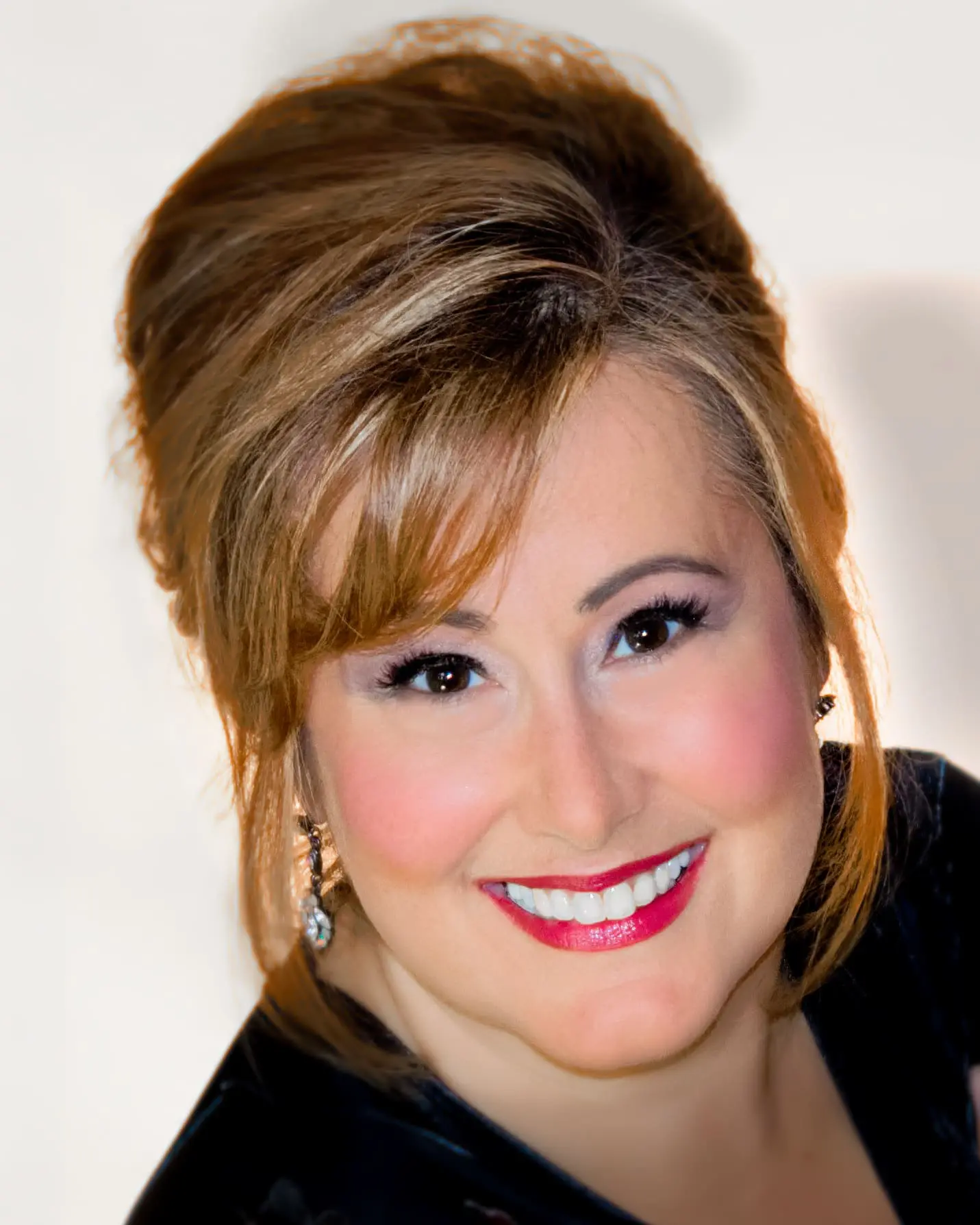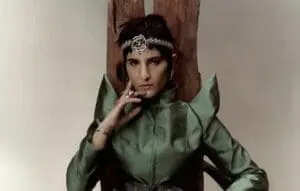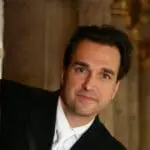This week’s Artist of the Week is one of Canada’s finest, soprano Aline Kutan. She is in rehearsals for Opéra de Montréal’s world premiere production of La Reine-garçon by Julien Bilodeau & Michel Marc Bouchard, running Feb 3-11 (info and tickets here).
Her career has taken her across the globe with performances in some of the world’s top houses, including La Scala di Milano, l’Opéra de Paris, Glyndebourne Festival, Grand Théâtre de Genève, Opéra de Marseille, Opéra de Monte-Carlo, Teatro di San Carlo – Napoli, and Teatro Colon in Argentina. She has performed numerous roles with highlights being Queen of the Night, Zerbinetta, Olympia, Konstanze, Violetta and her creation of the role Pasiphaé in Philip Fénelon‘s world premiere of Les Rois. Later this season, Aline will join Orchestre Classique de Montréal under the baton of Maestro Jacques Lacombe to perform in the concert A Life at the Opera: Tribute to Joseph Rouleau, on June 18 (tickets and info here).
This week, Aline was generous to share her pearls of wisdom about singing, life in the opera business, and this gem of how she views success: “Success lies neither in wealth nor fame but in the ability to tune with one’s desires to shape them into reality”.
When was your first singing lesson (and with whom)?
My first singing lesson was at the age of 11 with tenor David Meek. He had moved back to the lower mainland from Würzburg Staadtstheater in Germany where he had been singing lead fest roles around the same time that my family and I immigrated to Canada. David and his wife Sheila are dear friends whom I get to see when I visit my parents in White Rock, BC. Sheila was my piano teacher and accompanied me often at Kiwanis Music Festivals and recitals. At 83, David is still teaching and singing with his beautiful robust tenor voice. I also sang in the Surrey-Delta Youth Choir from age 10 to 16 which was conducted by the late Irene Schmor who instilled the love of singing with rigour and discipline.
Favourite city that you’ve worked in?
Avignon. I have sung multiple productions there and this quaint medieval city has a special aura which I’ve never found anywhere else.
If you weren’t a singer, you’d be :
I enjoy learning about history, geography, human biology, psychology and linguistics. I think I would have made a good anthropologist. The next best thing to that is studying opera roles.
Top 3 favourite composers
Mozart, Verdi, Strauss but so hard not to include Tchaikovsky, Gounod, Puccini and another slew of wonderful composers. And that’s just for opera. After that there is Rachmaninov, Schubert, Beethoven….I love all creative geniuses.
What’s your favourite opera house?
Teatro Colon, Buenos Aires. It has an acoustic that is warm and rich to the ears like thick hot chocolate at the palate.
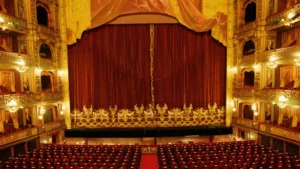
Teatro Colon, Buenos Aires, Argentina Photo: Getty Images
Which opera role do you want to be singing right now?
Donizetti: Lucia, Tudor Queens, Verdi: Rigoletto, Il Travatore, Luisa Miller, I Vespri Siciliani, Nedda in Leoncavallo’s Pagliacci and a bit later Bellini Norma, Wagner’s Kundry in Parsifal
Who is a singer you admire that is currently working?
Sondra Radvanovsky, beautiful singer with exceptional technique and poise. She is so moving vocally and dramatically with sublime pianissimi and divine musical expressions.
Who is a singer you admired from the past?
Maria Callas, Renata Tebaldi, Renata Scotto, Mirella Freni, Mariella Devia, Edita Gruberova, Ileana Cotrubas, Joan Sutherland, Monserrat Caballé.. I can’t bring the list down to one as these exceptional ladies all inspired me immensely as a young singer.
What’s the strangest/funniest thing that has happened to you on stage?
It was the third or the fourth performance of Ariadne auf Naxos at San Carlo di Napoli where I was performing the role of Zerbinetta. I had just entered the stage and was about to sing my first line in the Prologue when the orchestra came to a halt. I just stood there, looking at the conductor for clues as to what I should do next but he just turned to the audience and started to recount the story of the opera. Apparently, the subtitles had stopped working and he thought it a good idea to recount the ongoings of the plot. We eventually got going in about 10 minutes but it was a strange night. You never know what will happen at the opera!
What’s your favourite orchestral instrument? Why?
Clarinette because of its singing range and the depth of colour of the wind instruments. Schubert’s Shepherd on the Rock is one of my all time favourite lieder with clarinette. I have a trio recording with clarinettist André Moisan Louise Andrée Baril at the piano.
What’s your favourite thing about singing with an orchestra?
I love the beautiful colours that emerge from the collaboration of instruments. To blend into their vibrations and work to create harmony together is a great joy when working with an orchestra.
Tent or hotel?
Tent for camping, hotel for opera.
What are you afraid of?
Bias and prejudice.
Coffee or tea?
Espresso, per favore!
What is one surprising thing that you have learned in becoming an opera singer?
That the capacity to be resilient lies in the mastery of the breath. Singing acoustically in resonance means using all the muscles of the body in a great aerobic workout. The exhilaration of singing high notes is probably the same feeling as bungee jumping or sky diving. Singing coloratura is a supple, vigorous and disciplined practice like gymnastics and navigating my chest and head resonance is like finding gender fluidity between the female and the male forces in my body. My voice is they, them.
What’s your ancestry?
My ancestry is Armenian, one of the oldest civilizations, dating back to the 8th century BC.
What’s the luckiest thing that has ever happened to you?
Luckiest thing: Winning the New York Metropolitan Opera competition in 1995.
What’s the best thing about being an opera artist?
The dresses and the costumes! And being able to bring a role to life by stepping into the shoes of that character and singing the heart out.
Do you believe in ghosts?
Not after having sung in Andrew Lloyd Webber’s Phantom of the Opera for 2 years on the national tour 🙂
Which colour best symbolizes you?
Purple – a mix of cool blue and flamboyant red.
What’s a big investment for an opera singer but totally worth it?
Learning how to sing with support and then learning how to learn a role with the right teachers and coaches.
What is the best advice you have ever been given?
Be patient. Never try to climb the ladder too fast. It’s not how fast you get somewhere but how long you can stay there.
What is one thing that you cannot live without?
My breath.
What is the first thing you would do if you won the lottery?
I would buy a building or a church and convert it into an opera hall.
What is one very popular thing that you have no interest in?
Following Hollywood and its ‘stars’.
What’s the biggest risk you’ve taken for a production?
Free falling from a 20 feet high raked stage in the death scene of the Armenian opera Anoush for Michigan Opera Theatre. On the top of the cliff, after singing my final high G note, I would turn around to face the river and let myself go. I had to learn with a gymnastics coach how to flip myself around in mid air and then land on my back on the thick blue cushiony mat with a big X and a couple of stage hands waiting for me.
Do you think singers and performers have a more powerful inner life?
Artists certainly have an overabundance of imagination. This is the creative driving force or the inner life that creates and shapes a society. My wonderful coach Jacqueline Richard used to say that imagination is the one unique sense we don’t share with animals.
Does singing help keep you young?
Absolutely. singing is a form of aerobics, lifting for the face muscles and uplift for the soul.
As a performer, have you achieved everything you wanted to achieve?
The achievement of performing a role lies with those who do the hiring and that can be quite frustrating when one is not offered the roles one is aspiring to sing. But the process of working on the music, creating and evolving artistically is the ultimate achievement. I am able to sing roles that I never thought possible and still evolving with my voice.
When was the first time you cried at the opera?
The first time I remember crying after an opera was Zefirelli’s film version of Traviata with Teresa Stratas and Placido Domingo. I was about 14 and so heartbroken for Violetta’s fate. I can never stay dry-eyed for Verdi and Puccini operas if they are sung well.
How old were you when you discovered opera?
My mom used to take my sister and me to the children’s theatre and I used to love the ones with the musical numbers. I was around 7 or 8 when I saw my dad’s friend, tenor Kevork Boyaciyan sing in Fledermaus at the Istanbul opera house. I remember the colourful sets and costumes.
Does your process change from role to role?
Different languages, styles and characterization necessitate the usage of different techniques to achieve the result.
What does it mean to be brave with music?
It means that you sing from the heart and the gut and you learn to resist collapsing the breath. Many call this breath control. I call it love, the ultimate force of the body.
Which of your roles has had the greatest impact on your perspective?
Anne Trulove, Gilda and Lakmé. These women all try to save men who are oblivious to the love and sacrifice made on their part.
What is happiness for you?
Doing the things that bring you joy and satisfaction.
What’s the most important lesson you learned from childhood?
Not take every advice or opinion given, think critically and listen to your gut.
What does success look like to you?
Success lies neither in wealth nor fame but in the ability to tune with one’s desires to shape them into reality. Success for me is doing that which I love with determination and dedication, whether it is in raising a child, expressing myself to the best of my abilities on stage, teaching the next generation of singers, making a difference in someone’s life or fulfilling my heart’s desires.
LEARN MORE ABOUT ALINE KUTAN
VISIT HER WEBSITE
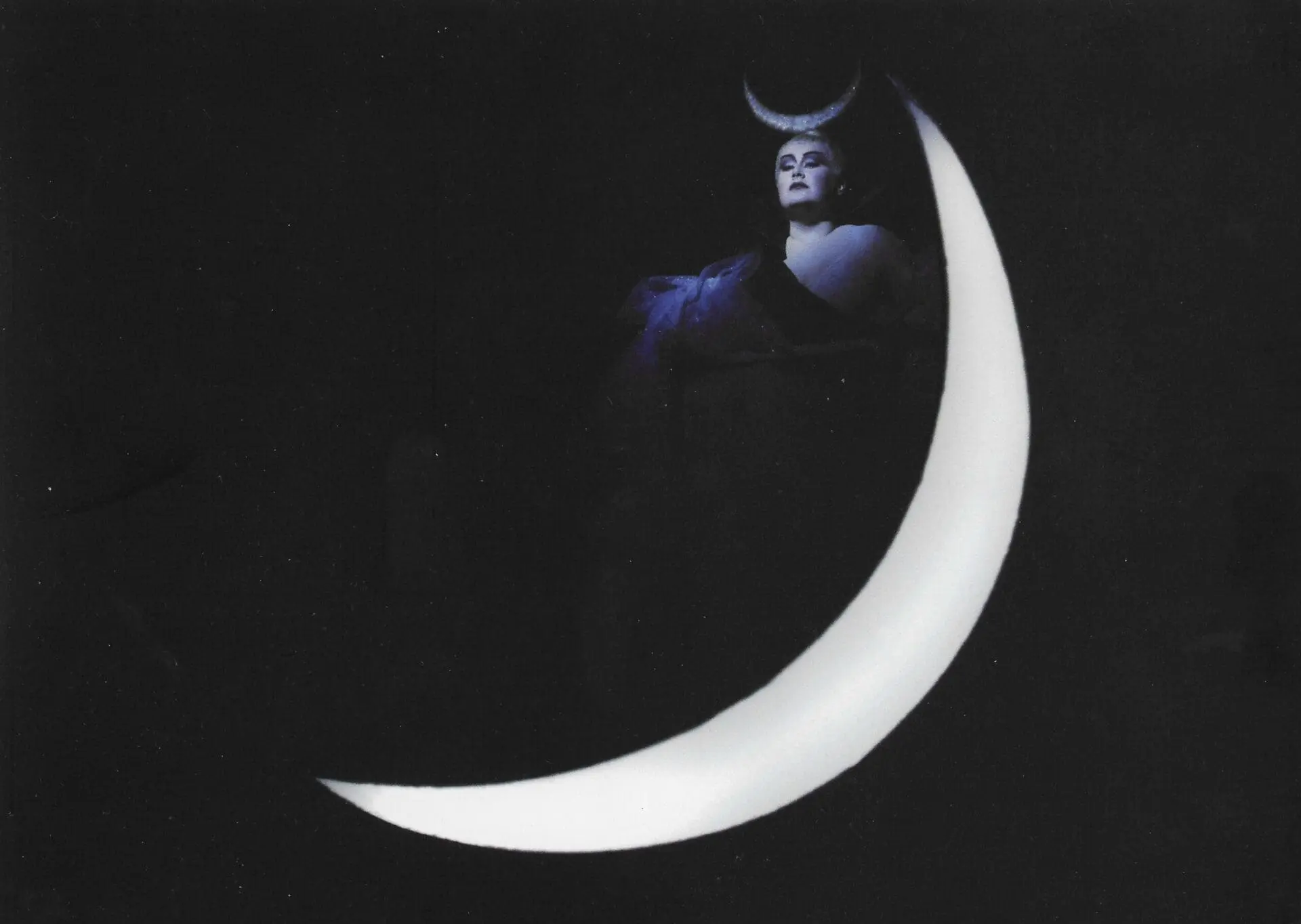
© Courtesy of Aline Kutan
Opéra de Monte Carlo: Mozart Die Zauberflöte 2008
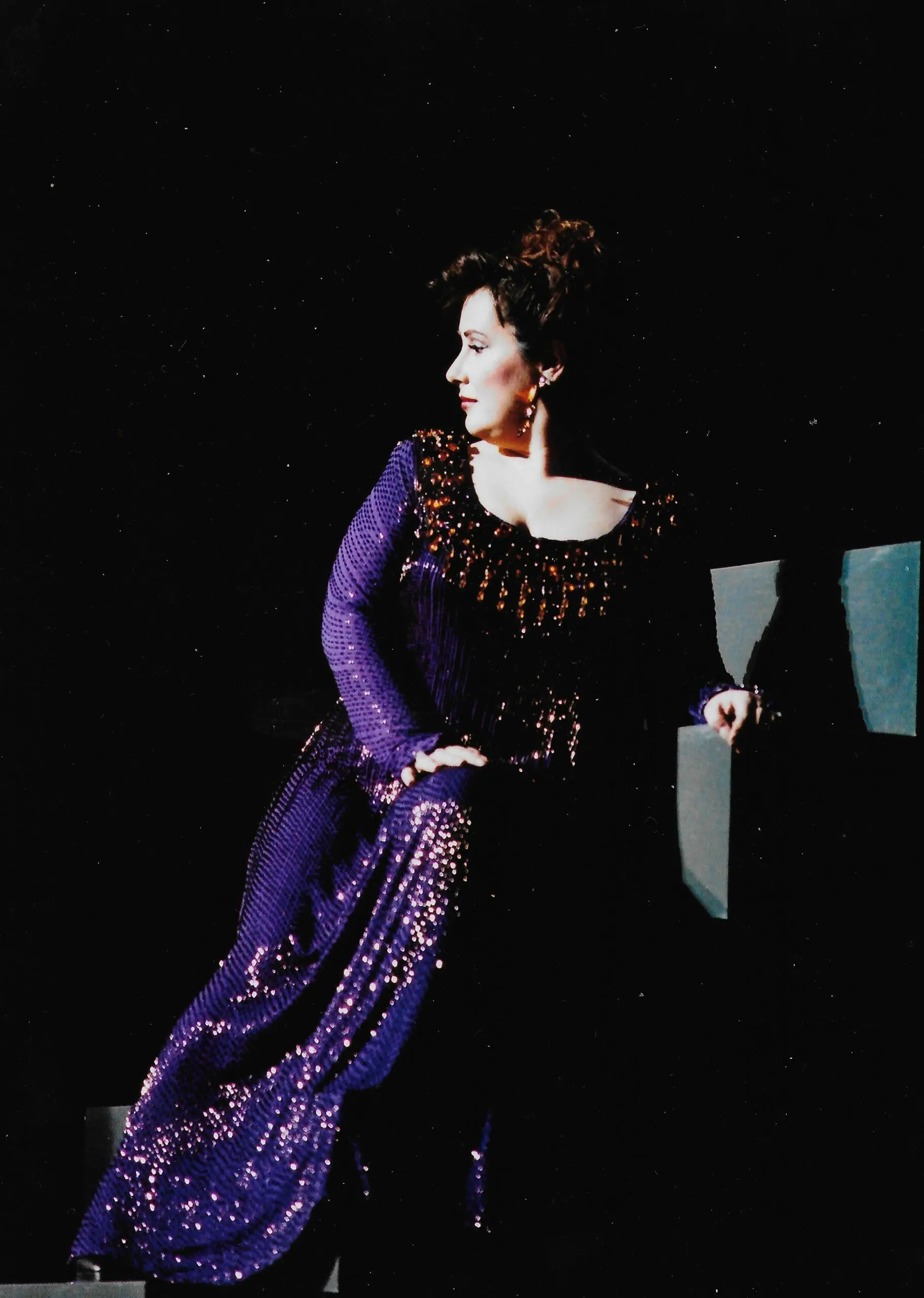
© Courtesy of Aline Kutan
La Scala di Milano: Salieri: Europa Riconosciuta 2005
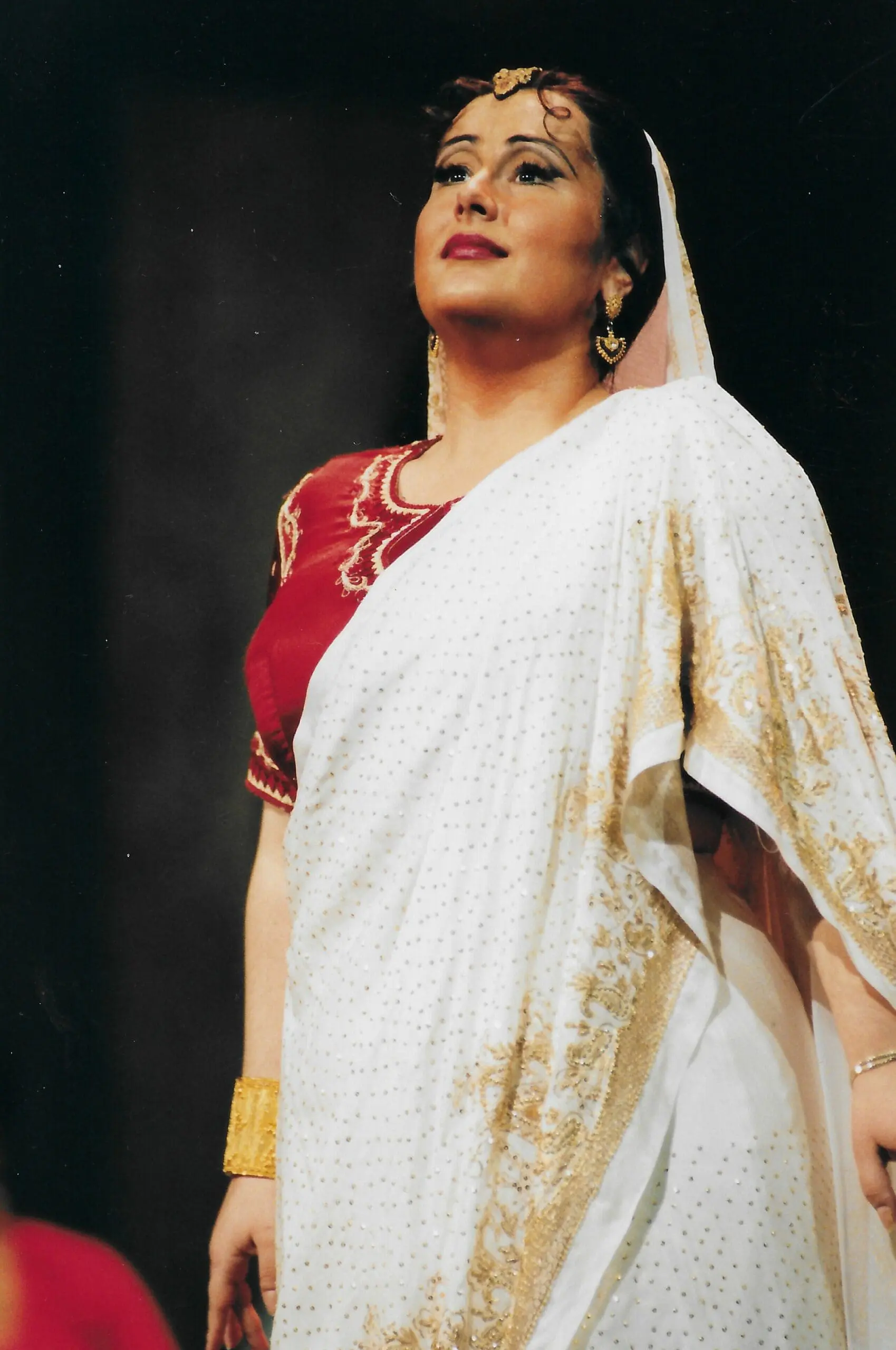
© Courtesy of Aline Kutan
Michigan Opera Theatre: Delibes Lakmé 2002
Julien Bilodeau & Michel Marc Bouchard’s
La Reine-garçon
Opéra de Montréal
Feb 3, 6, 8, and 11
CONDUCTOR: Jean-Marie Zeitouni
DIRECTOR: Angela Konrad
CHRISTINE, QUEEN OF SWEDEN: Joyce El-Khoury
COUNT KARL GUSTAV: Etienne Dupuis
COUNTESS EBBA SPARRE: Pascale Spinney
CHANCELLOR AXEL OXENSTIERNA: Daniel Okulitch
COUNT JOHAN OXENNSTIERNA: Isaiah Bell
RENÉ DESCARTES: Eric Laporte
MARIE- ÉLÉONORE DE BRANDEBOURGE: Aline Kutan
ASSISTANT DE DESCARTES: Alain Coulombe
ORCHESTRE SYMPHONIQUE DE MONTRÉAL
CHOEUR DE L’OPÉRA DE MONTRÉAL
After the great success of Les feluettes (2016) and La Beauté du monde (2022), Quebec playwright Michel Marc Bouchard is back with his libretto for La Reine-Garçon, an adaptation of his play, Christine, la reine-garçon. He is joined by composer Julien Bilodeau, with whom he has undeniably developed a privileged creative chemistry. Come and hear great Canadian voices, including those of Joyce El-Khoury and Etienne Dupuis, in a production staged by Angela Konrad (Yourcenar, une île de passions – 2022).
NO NEED FOR A CROWN WHEN YOU STAND TALL
Christine, Queen of Sweden, governs a nation barely recovering from the protracted Thirty Years’ War. While great philosophical and scientific insights emerge throughout Europe, Queen Christine, raised as a boy by her father, seeks to better understand the darkness within her. Love, convictions, duty: where does one draw the line?
Opera Canada depends on the generous contributions of its supporters to bring readers outstanding, in-depth coverage of opera in Canada and beyond.
Please consider subscribing or donating today.

